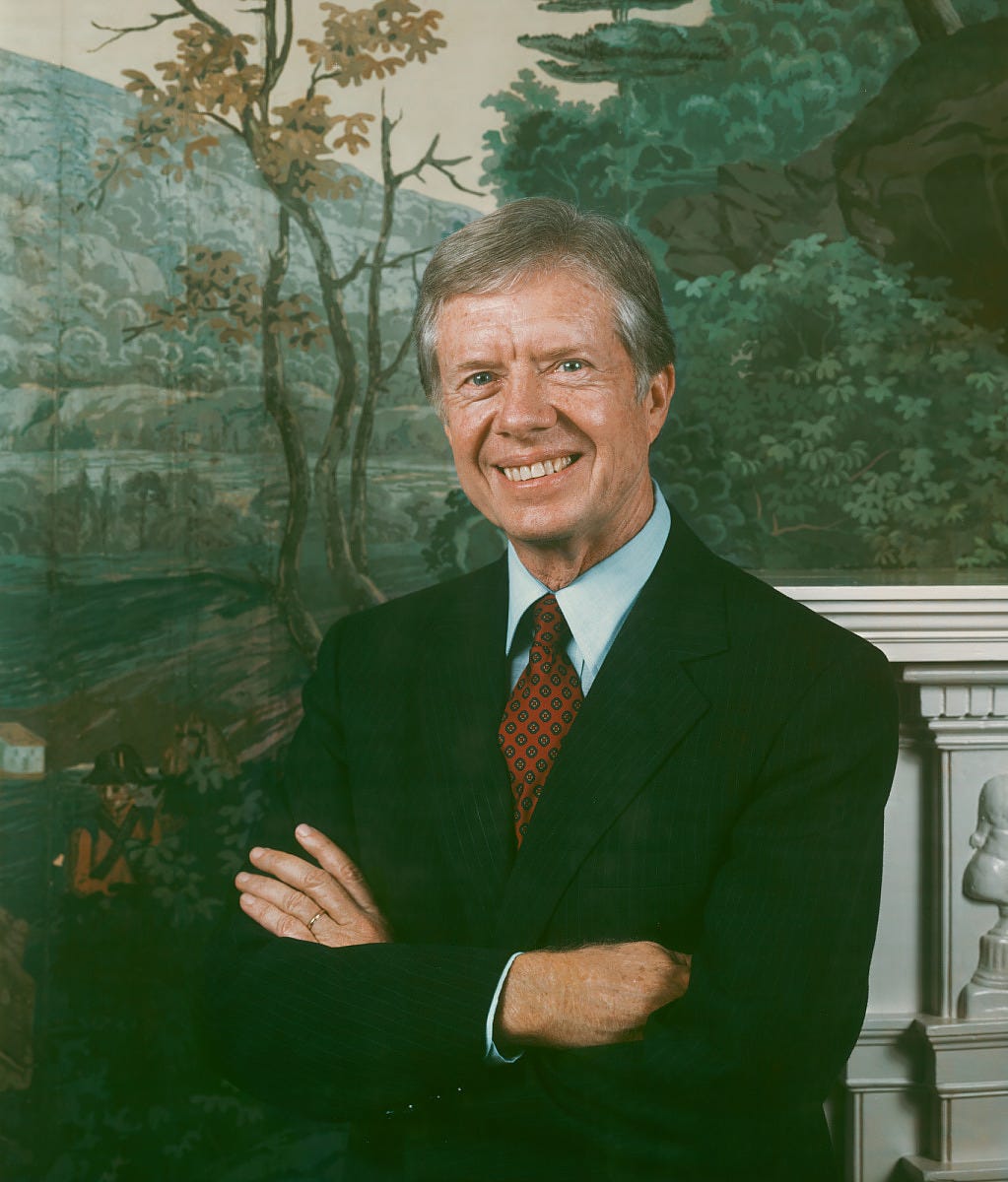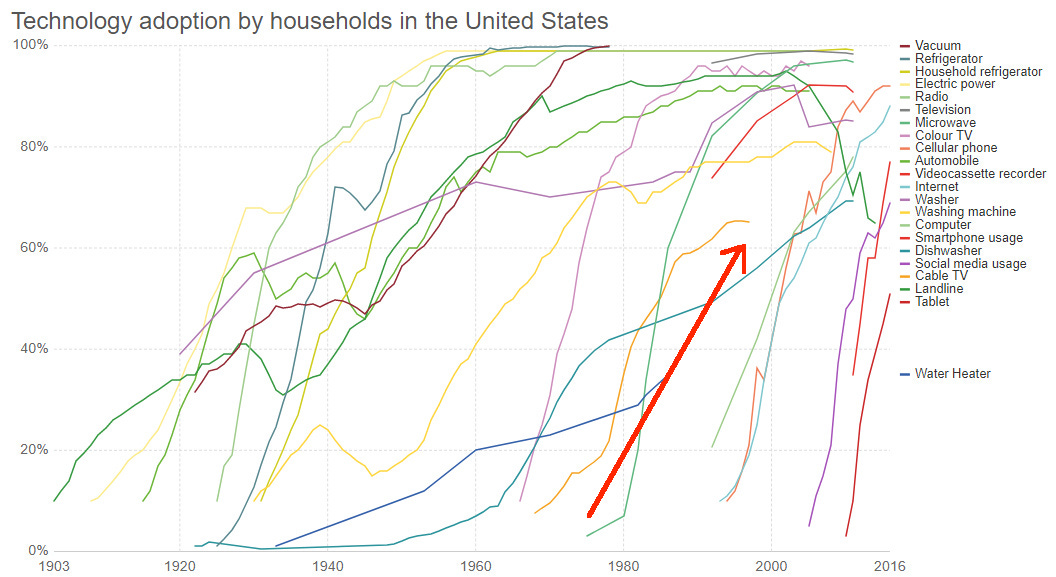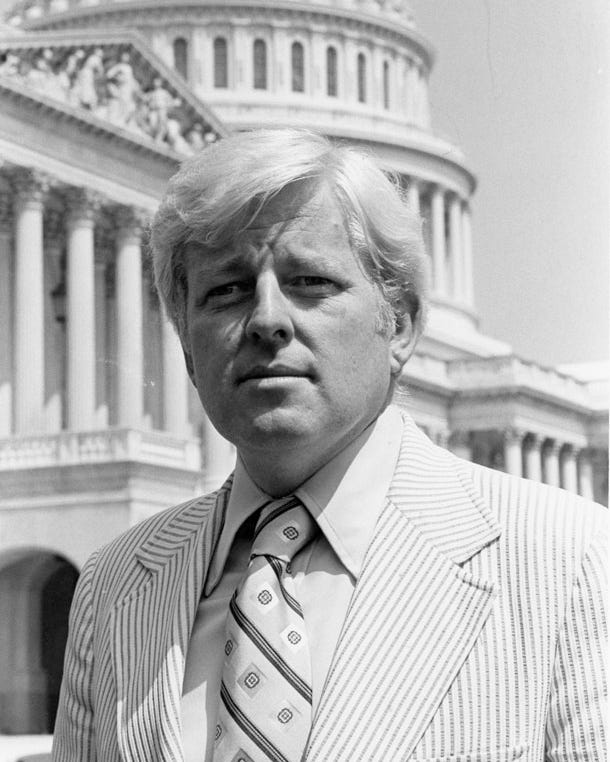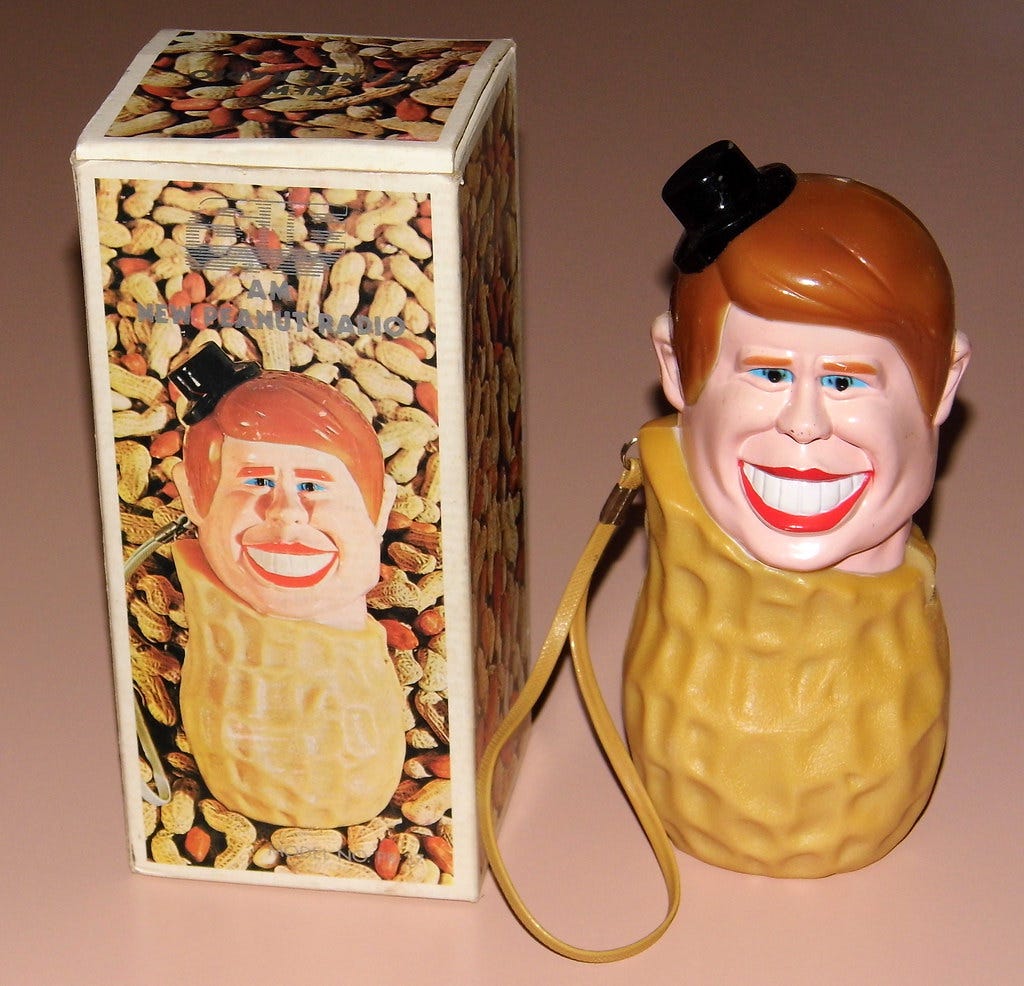Jimmy Carter vs. the Fairness Doctrine
We're still feeling the effects from broadcasting deregulation in the late-1970s.
Jimmy Carter lived long enough—and he is the longest living former president by a substantial margin, with the gap between him and #2, George HW Bush, nearly as wide as that between Bush and #6, Herbert Hoover!—to see the fruits from his sweeping crusade for federal deregulation.
Others have discussed Carter’s legacy as the Great Deregulator of airlines, craft beer, trucking, rail, oil and natural gas, and much more. It’s all true and Carter deserves credit for laying a foundation for the economic prosperity of the 1980s and 1990s. It really was a remarkable moment, one in which public discontent with economic stagflation drove even liberal Democrats like Senator Ted Kennedy and the future Justice Stephen Breyer to support dismantling entire federal agencies.
But I want to focus here on an underrated aspect of Carter’s deregulatory campaign: broadcasting. During the Carter years, the Federal Communications Commission under chairman Charles Ferris oversaw an unprecedented degree of broadcasting deregulation that ultimately prepared the way for the rise of cable, satellite, and talk radio.
Prior to the mid-1970s, the Federal Communications Commission had taken a cautious approach to disruptive technologies like cable and satellite. In the 1950s, cable broadcasting had been growing rapidly with 40% year over year subscriber growth, especially in areas like Appalachia with poor aerial reception . But by the 1960s, over-the-air broadcast stations—and the well-connected and well-heeled television networks owning them—began to worry about the competition. They pushed the FCC into rulemakings in the 1960s and early 1970s that imposed a variety of must-carry, anti-leapfrogging, and set-aside requirements that stunted cable expansion.
Then in a series of reforms culminating in 1978, the FCC removed the most stifling of the regulations, allowing cable expansion to pick up where it had left off before. (On the tech adoption chart below, I’ve drawn an arrow highlighting the orange line showing cable tv adoption.)
Although all’s well that ends well, I do still find it deeply frustrating that a handful of unelected bureaucrats captured by the television industry delayed the rollout of cable television by nearly two full decades. (Like they had FM radio, cellphones, and other previous new technologies.) This had drastic consequences for American politics, society, and culture since the content of cable television could not be regulated by the FCC to the same degree as it had patrolled over-the-air broadcasts for obscenity and political fairness.
Indeed, the FCC’s diminished jurisdiction over cable tv was itself partly a product of the Carter administration. In 1975 the FCC—still concerned with protecting over-the-air tv—had tried to prohibit cable tv providers from airing movies less than ten years old as well as most major sports events and all standard television series. HBO, however, saved the day, suing the FCC in a case that ultimately established in 1977 that the FCC could not regulate cable content. And under Carter’s newly installed FCC Chairman Charles Ferris, the Commission decided neither to challenge the ruling nor to create new rules to circumvent it.
Ferris was an interesting guy. Carter had poached him from Capitol Hill, where he had worked for powerful congressmen like House Speaker Tip O’Neill and Senate Majority Leader Mike Mansfield, earning him the nickname of the “101st Senator.” He knew nothing about telecommunications except that it needed to be deregulated. In his first public statement as Chairman, Ferris announced that the New Deal-era regulatory structure had “ossified.” To inject more cost-benefit style thinking into the rule making process, Ferris hired a bunch of economists, who shared his neoclassical beliefs.
Ferris enacted a wide variety of reforms, but perhaps the most significant besides his laissez-faire touch on cable and satellite was the functional end of the Fairness Doctrine regime. The Fairness Doctrine (FD) had ostensibly existed to promote balanced discussion of “controversial issues of public importance,” like politics and current events. If, say, a station aired a program criticizing the president’s policy in Vietnam, it had an obligation under the FD to air programming that supported the president’s policy. However, the Fairness Doctrine promoted fairness only in theory. In practice, as I detailed in my book, the Fairness Doctrine had been weaponized by the Kennedy, Johnson, and Nixon administrations to silence their opponents.
As far as I know, Ferris did not care about the Fairness Doctrine per se, or even know about its abject abuse under previous administrations; but he generally believed that public interest regulations which failed to improve the market “were nothing but a nuisance,” hardly the stance of someone interested in enforcing the Fairness Doctrine. Furthermore, Ferris transformed station license renewals into a pro-forma process, thus removing the key mechanism by which the FD was enforced via public (and often astroturfed) complaints at renewal time. As a result, the Fairness Doctrine became increasingly dead letter after 1977, although it was not formally repealed until 1987, when old radio hand Ronald Reagan also used his veto to block Congress’s attempt to revive the FD.
It is hard to overstate how different television would have been from the 1980s-2020s were it not for the Carter / Ferris deregulatory reforms. Much of what we take for granted in television today would not be possible under the old regime. If cable had been placed under over-the-air style FCC regulation, we probably wouldn’t be living in the era of peak television. There’d be no Sopranos or Breaking Bad if cable wasn’t allowed to air series. It would’ve crippled the “Home Box Office” and similar channels if newer movies had been banned from cable. T`here’d be no political commentary shows like Stephen Colbert or The Daily Show under a Fairness Doctrine regime mandating the very kind of “fair and balanced” coverage that those shows were created to parody and criticize.
So in honor of Jimmy Carter, I leave you with this unholy amalgamation of Jimmy Carter mixed with Mr. Peanut that is a functioning transistor radio. It was marketed by Jimmy’s brother, Billy, better known for another product stunt, the much lampooned “Billy Beer.” (And for his questionable but personally profitable relationship with Gaddafi’s Libya. Imagine if Hunter was Joe’s brother instead of his son.)




